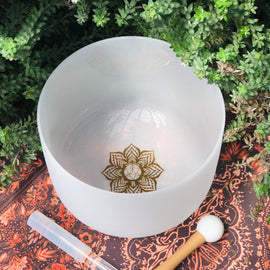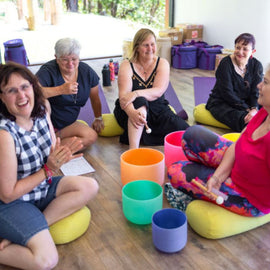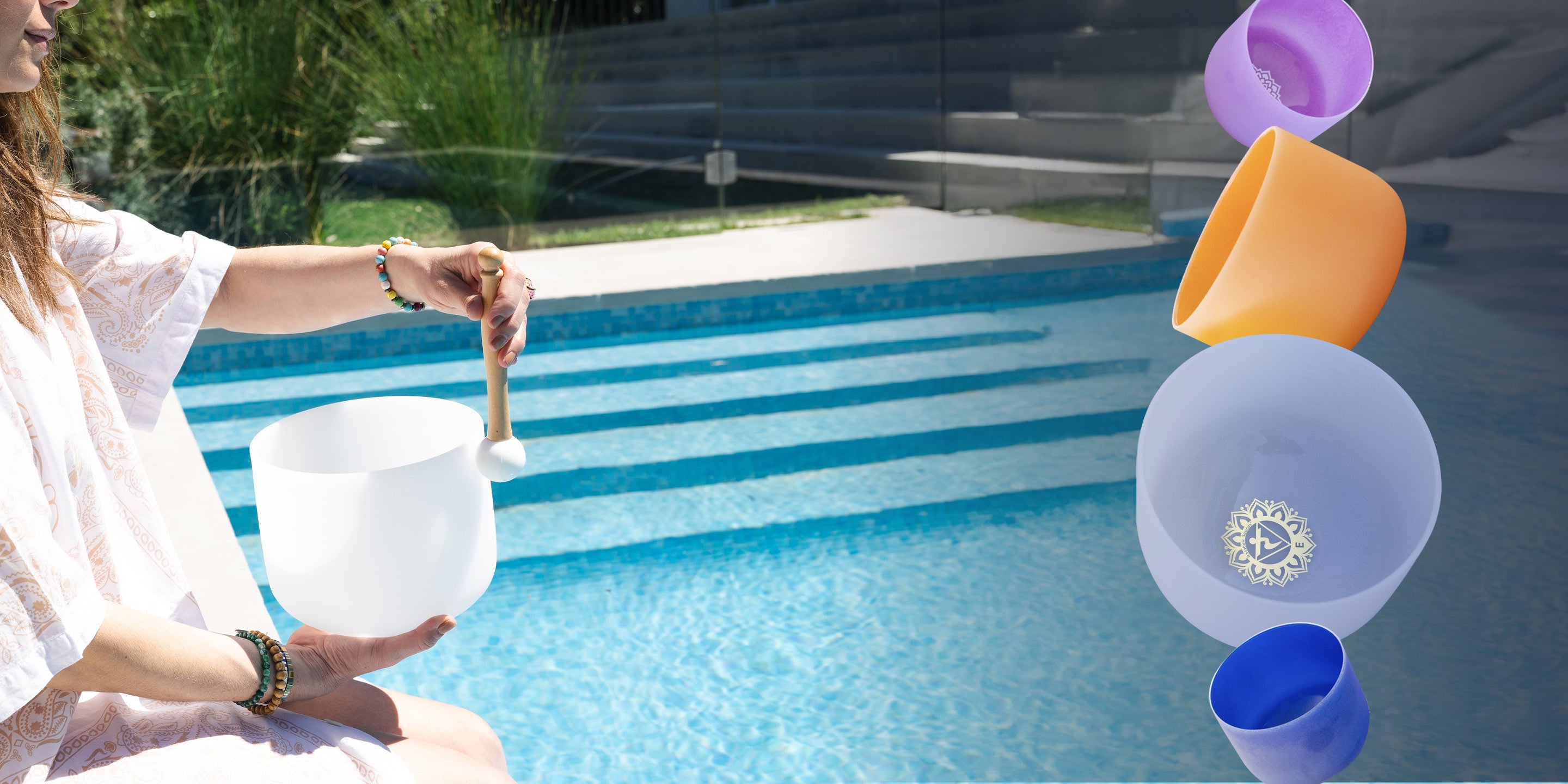Article by Bianca Sengos, Founder and CEO of Rainbow Sounds
Increasingly, research in psychology and neuroscience confirms that sound-based practices can help ease symptoms related to anxiety, stress, and sleep disruption. Whether used as a personal mindfulness technique or alongside professional care, sound therapy offers a simple, evidence-informed way to support everyday mental wellbeing.
Science-Backed Benefits of Sound Therapy
With Rainbow Sounds Sound Therapy Bowls and training, you can bring sound therapy into your daily life as a supportive tool for health and wellbeing. Playing your bowl is both accessible and versatile. You can use it as a personal practice (self-guided sound meditation) or invite a family member to play for you, creating either an interactive or a restful, passive session.
Many of our customers use Rainbow Sounds Sound Therapy Bowls as part of their wellness routines, supported by an expanding field of scientific research. Below are some areas where sound therapy is being actively studied, with peer-reviewed findings you can explore.
Anxiety and Mood Disorders
After a 60-minute sound therapy bowl session, participants reported significant reductions in tension, anger, fatigue, and depression. Interestingly, the effects were strongest in people who had never tried sound meditation before.
Stress and Cortisol Reduction
Music therapy, especially rhythmic entrainment and relaxation-focused sounds, has been shown to reduce salivary cortisol levels—a key biomarker of stress.
Heart Rate Variability (HRV) & Nervous System Regulation
After a 60-minute sound therapy bowl session, participants reported significant reductions in tension, anger, fatigue, and depression. Interestingly, the effects were strongest in people who had never tried sound meditation before.
Insomnia and Sleep Quality
In a randomized pilot study, tuning fork sound therapy improved sleep quality and reduced insomnia symptoms within four weeks.
Study: A randomized controlled trial of bedtime music for insomnia disorder(2019)
Chronic Pain and Fibromyalgia
Structured music and sound therapy interventions reduced perceived pain, improved mood, and enhanced quality of life in patients with chronic pain and fibromyalgia.
Cancer Support and Immune System
Music interventions have been shown to reduce anxiety, pain, and fatigue, while also supporting immune function and treatment tolerance in cancer patients.
Parkinson’s Disease and Motor Symptoms
Low-frequency sound vibrations (e.g., 40Hz) improved motor performance and reduced tremors in patients with Parkinson’s disease.

Bringing Sound Therapy Into Your Life
These studies offer a glimpse into what sound therapy can achieve in supporting both body and mind. At Rainbow Sounds, our Sound Therapy Bowls are designed for accessibility and effectiveness. They can be used in personal practice, guided sessions, or supportive care settings, providing a structured, intentional method to promote relaxation, nervous system regulation, and overall wellness.
Even a few minutes of daily practice—focusing on tone, breath, and intention—can offer measurable benefits. By integrating sound therapy into routine self-care or clinical support, individuals can cultivate physiological balance and emotional resilience. With growing scientific understanding of sound’s impact on wellbeing, Rainbow Sounds bowls offer a tool that’s both evidence-supported and beautifully simple to bring into everyday life.
✨ by Rainbow Sounds Founder Bianca Sengos.












